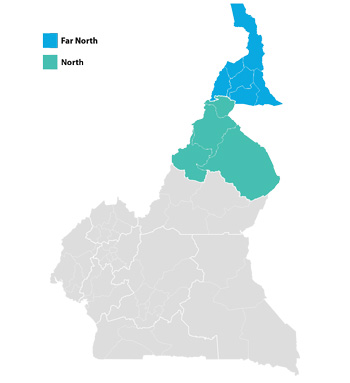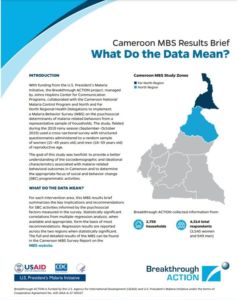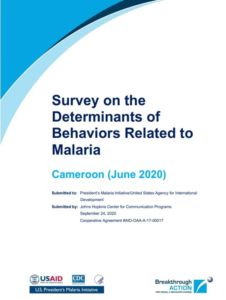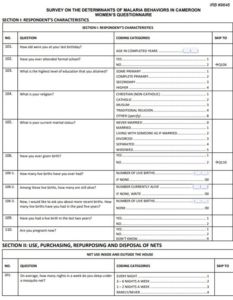Country Results
The Cameroon Malaria Behavior Survey was fielded between September 5 and October 1, 2019. Survey results were analyzed in coordination with the National Malaria Control Program and released in 2020. The survey was carried out by the Breakthrough ACTION project in Cameroon in collaboration with the National Malaria Control Program, the U.S. President’s Malaria Initiative, and several other local organizations.
Study Zones

Survey Zones and Respondents
Key Behavioral Determinants at a Glance
57%
of febrile children under five were brought to a health facility or community health worker first, the same or next day
76%
of households with sufficient nets used them every night the week
44%


